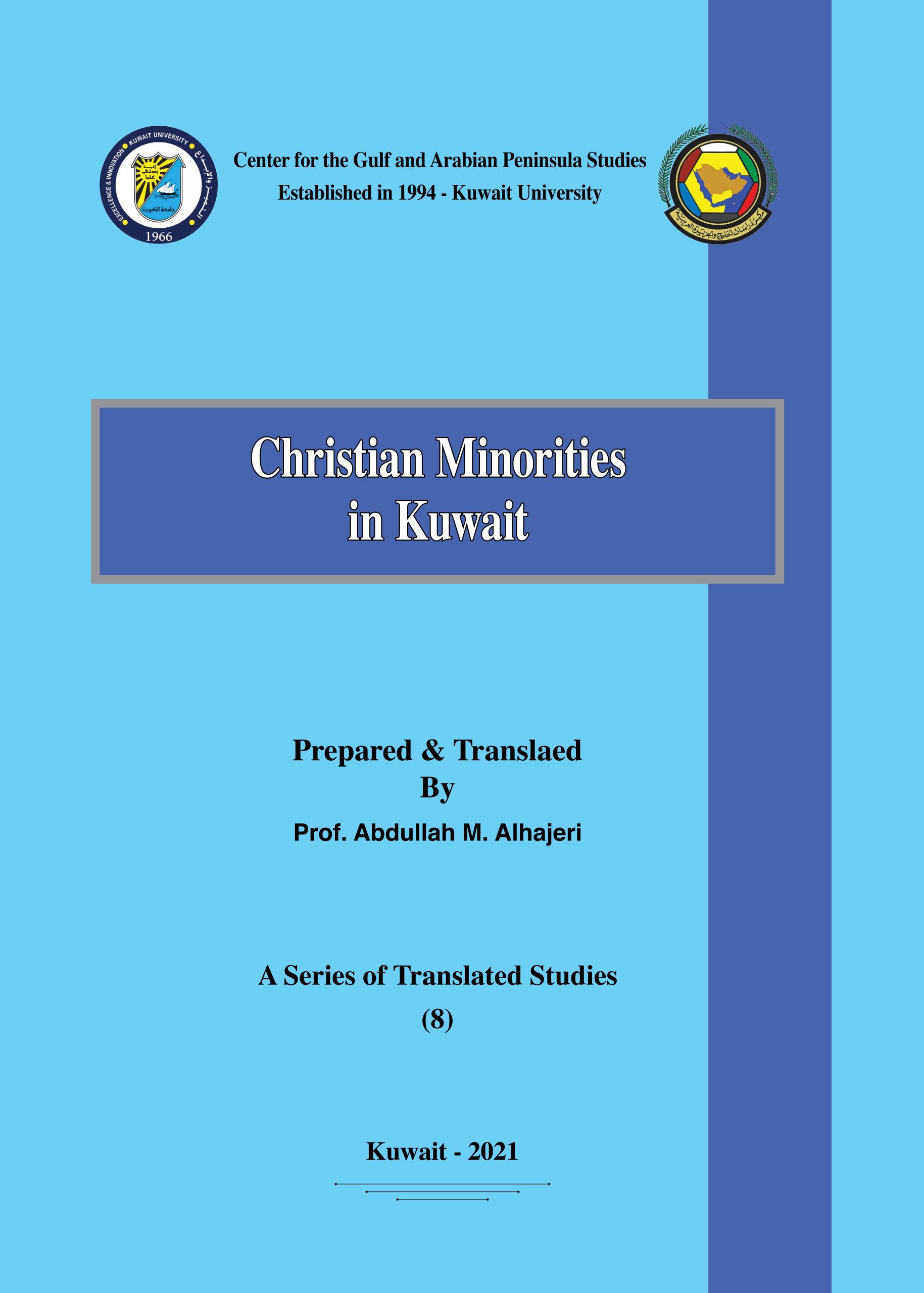Abstract:
Religious and ethnic minorities have largely influenced political, economic, cultural, and ideological developments in the Arab world in the last two centuries. Although the relations that these minorities have had with the governments and populations in the concerned countries have passed through phases of quick and major changes in some cases, yet some of these minorities integrated well and gradually with their burgeoning communities, away from violence and confrontation. As for the Arabian Gulf region and Kuwait in particular, there might be difficulties in dealing with the history of the most important non-Muslim minorities found on its territory, namely the Christian Kuwaitis. How Christianity came to this tiny emirate and the status of Christian Kuwaitis may be equally difficult issues to discuss. In any case, this is not religious research into sectarian, political or even ethnic confrontation among minorities in the emirate of Kuwait1. In today’s Kuwait, one of the countries in the Arabian Peninsula, and after more than 1400 years of the advent of Islam, and in the heart of the capital near the National Assembly (Parliament of Kuwait), we find this huge church building considered one of the oldest on Kuwaiti territory in the modern era. This is the National Evangelical Church2, built in the early thirties of the previous century, specifically in 1931, and is one of eight church buildings in the emirate. What is strange about this church building is not its proximity to the highest legislative institution in the country; rather it is in the huge cross showing on the church façade, considered unacceptable in a country where 99% of the populations are Muslims3. Moreover, Kuwait had the oldest Christian cleric in the Gulf region who conducted services in traditional national dress (Ghutra and Eqal). The Rev. Jacob Abraham Shammas, who sang hymns and recited prayers in the local Kuwaiti dialect, was the first Kuwaiti cleric to earn the title of Sheikh in the Arab Evangelical Church in 1964. He was succeeded by Solomon Simon Shammas, and both passed away in 1980 and 1984, respectively. The current Kuwaiti pastor is Emanuel Benjamin Gharib, patron of the National Evangelical Church in Kuwait4. In this study, the researcher has tried to answer several questions, including: Who are the Christian Kuwaitis? When and how did they come to settle in Kuwait? How many are they, their denominations, and churches? How do they practice their religious rituals? Do they face discrimination or intolerance? How are they accepted by their fellow Kuwaiti Muslims? Therefore, this paper explores and reviews the different Kuwaiti Christian minorities using a historical approach aiming as a historian at providing such a study.
Hits : 170
